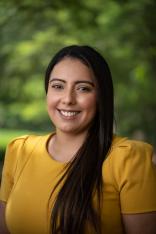Our Scholars
Maria Coronel, PhD
TBA
Joshua Emrick, DDS, PhD
Chelsey Spriggs, PhD
Despite their impact on public health, mechanisms of virus entry are often poorly understood. Our lab seeks to understand the cell biology of oncogenic and oncolytic viral infections. Specifically, we investigate the virus-host interactions mediating DNA viral entry with particular interest in the steps required for these viruses to gain entry into the nucleus. Our lab uses a combination of classical biochemistry and molecular biology techniques with advanced microscopy to clarify the relationship between virus infection and cancer.
Lauren Surface, PhD
Not only is the weakening of bones during aging a growing public health concern, the skeletal system helps coordinate metabolism via secreted hormones. Our lab leverages genome-wide screening methods, followed by molecular, cellular and organismal investigations to understand the responses of bone cells, both to osteoporosis drugs, and how they sense and response to altered serum levels of mineral ions, a key aspect of how bone cells coordinate organismal metabolism. Using these findings, we aim to better identify and tailor treatments for patients with skeletal-related diseases.
Chase Weidmann, PhD
RNA-protein complexes represent an untapped well of potential therapeutic targets. My laboratory employs chemical probing and multi-omics technologies coupled with cell-based phenotypic assays to characterize how noncoding RNA-protein interaction networks drive diverse fundamental biology and how their dysfunction contributes to disease, especially cancer





